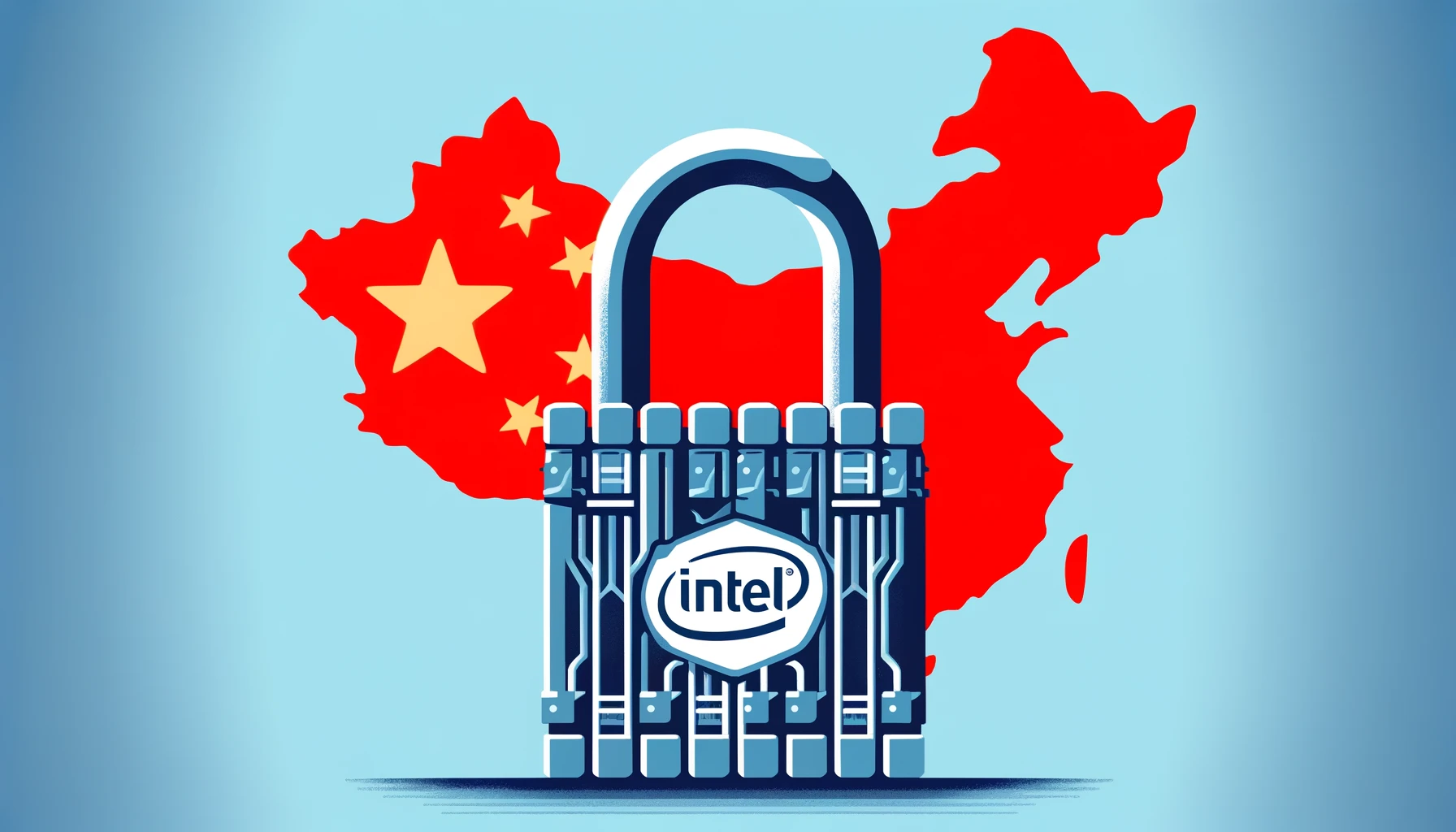
Intel Corporation announced on Wednesday a significant expected drop in its second-quarter sales following the U.S. government’s revocation of several export licenses for a major Chinese customer. The move, which Beijing criticized as an overreach under the guise of national security, has intensified tensions between the two global superpowers.
Intel, a giant in the semiconductor industry, disclosed in its recent filing with the Securities and Exchange Commission that it would no longer be able to ship certain products to one of its key customers in China. While the customer’s name was not officially released by Intel, it was reported by Reuters on Tuesday that the customer is none other than Huawei Technologies, the Chinese telecoms equipment maker that has been at the center of a longstanding dispute between the U.S. and China.
The Sequence of Events:
- Huawei’s AI Milestone: In April, Huawei released its first AI-enabled laptop, the MateBook X Pro, equipped with Intel’s cutting-edge Core Ultra 9 processor. This launch drew criticism from Republican lawmakers, suggesting that the U.S. Commerce Department had perhaps prematurely authorized the sale of this advanced technology to Huawei.
- Drop in Intel’s Stock: Following the announcement, Intel’s stock price fell by 2.9%, closing at $29.80 on Wednesday. The company has seen a nearly 38% decline in its shares year-to-date.
- Qualcomm’s License Revocation: On the same day, Qualcomm, another semiconductor leader, revealed that it too had an export license revoked for Huawei, although its stock price remained stable.
Commerce Secretary Gina Raimondo, addressing the issue post a congressional hearing, expressed concerns about the potential misuse of advanced artificial intelligence technology by entities like Huawei. She emphasized that the decision was based on newfound insights into the AI capabilities of the chips previously licensed for export, necessitating a reassessment and eventual revocation of these licenses.
Impact of Export License Revocations on U.S. Companies
| Company | Impact on Stock | Export License Status | Remarks |
|---|---|---|---|
| Intel | Down 2.9% | Several revoked | Major losses, reevaluation of sales expectations for Q2 |
| Qualcomm | No change | One revoked | Stable despite revocation |
The Chinese foreign ministry has vehemently opposed the U.S.’s decision, accusing it of stretching the concept of national security too far and using export controls to unjustifiably suppress Chinese companies. This criticism comes against the backdrop of a broader U.S. strategy to curb China’s rapid technological advancements and military capabilities.
- Trade Restrictions: The U.S. placed Huawei on a trade restriction list in 2019, citing national security concerns and potential espionage.
- Licensing Challenges: Suppliers for companies on the trade restriction list must obtain a special license, which is notably difficult to secure.
- Presidential Efforts: President Joe Biden has actively utilized export bans and international diplomacy to limit China’s access to sophisticated technologies deemed critical to U.S. interests.
- Dialogue with China: Biden has outlined this approach in discussions with Chinese leader Xi Jinping, marking it as a new standard in the competitive dynamic between the two nations with differing political ideologies.
The escalation of export restrictions reflects a deepening chasm in U.S.-China relations, particularly in the realm of technology and trade. The Biden administration’s latest actions signify a firm stance in denying China access to America’s “crown jewel” technologies, which include innovations in quantum computing and robotics. This strategy aims not only to protect U.S. national security but also to maintain a technological edge in an increasingly competitive global environment.
Related News:
Featured Image courtesy of DALL-E by ChatGPT
